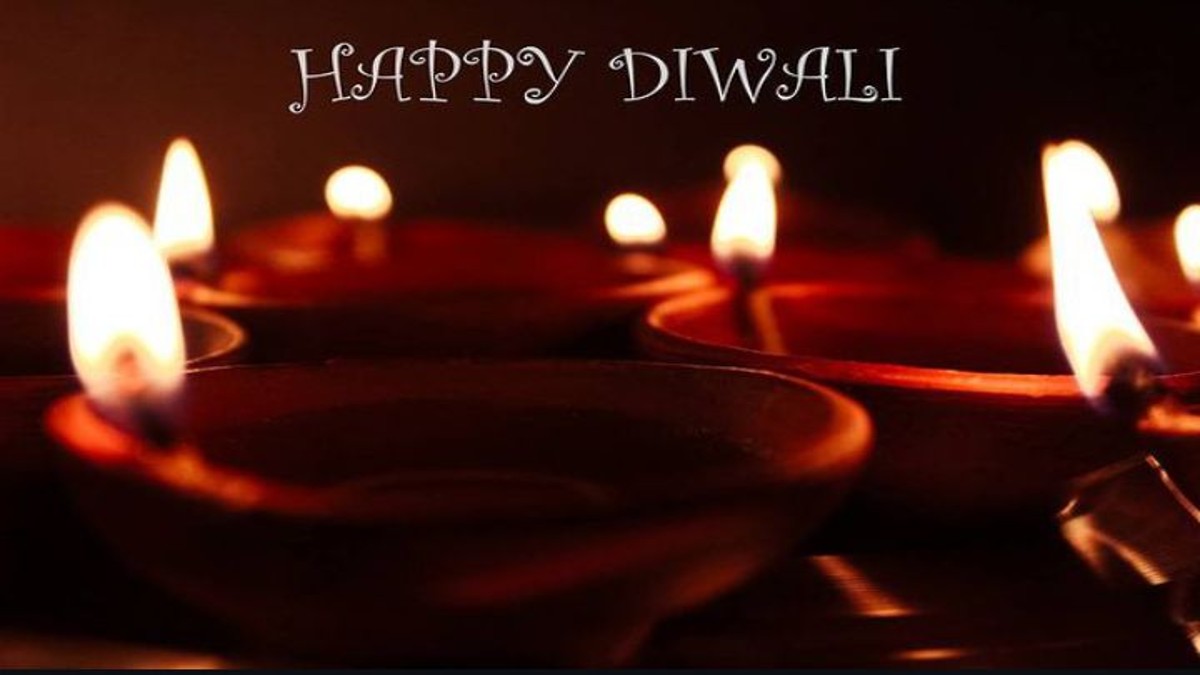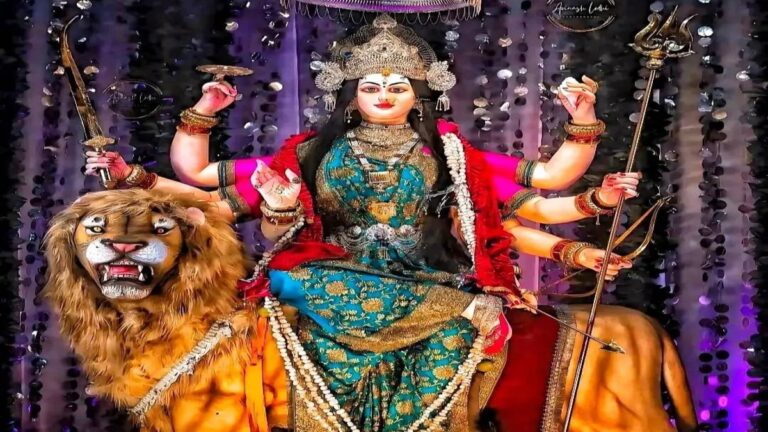Diwali, also known as Deepavali, is one of the most widely celebrated festivals in India and holds immense cultural, spiritual, and social significance for millions of people. As we look toward 2024, the question of when Diwali will be observed is a common query, given its variable date on the Gregorian calendar. The answer lies in understanding the festival’s roots in the Hindu lunar calendar and the precise timing of its associated rituals.
When is Diwali in 2024?
In 2024, Diwali will be celebrated on Thursday, October 31st. The exact date of Diwali changes every year because it is based on the lunar phases of the Hindu calendar. The festival typically falls in October or November, depending on the position of the moon, specifically on the new moon (Amavasya) of the month of Kartika.
The Hindu Lunar Calendar and Diwali
The Hindu calendar is a lunisolar calendar, which means it is based both on the cycles of the moon and the position of the sun. This makes it distinct from the purely solar Gregorian calendar, which most of the world follows today. The month of Kartika in the Hindu calendar is particularly auspicious, and the new moon day, or Amavasya, during this month is when Diwali is observed.
The festival’s timing can fluctuate because the lunar cycle doesn’t perfectly align with the 365 days of the solar year. Thus, Diwali can fall anywhere between mid-October and mid-November, and predicting the exact date involves calculating the position of the moon. This variation often leads to excitement and anticipation as families and communities prepare for the celebration.
The Five Days of Diwali
Diwali is more than just a one-day event. It is a five-day-long festival, with each day having its own significance, rituals, and customs. In 2024, the Diwali period will span from Tuesday, October 29th, to Saturday, November 2nd. Here’s a breakdown of the five days:
- Day 1: Dhanteras (October 29, 2024)
Dhanteras, the first day of the Diwali festivities, is marked by prayers to Lord Dhanvantari, the god of health and healing. Traditionally, people clean their homes and purchase new utensils or gold and silver items, believing it brings good fortune. - Day 2: Naraka Chaturdashi (October 30, 2024)
Also known as Choti Diwali, this day commemorates the victory of Lord Krishna over the demon Narakasura. It’s a day to cleanse the self, both physically and spiritually. Many people take early morning oil baths, wear new clothes, and light lamps as part of the celebrations. - Day 3: Diwali (October 31, 2024)
The main day of Diwali is the new moon night when the festival reaches its peak. Families gather for the Lakshmi Puja, praying to the goddess of wealth, Lakshmi, for prosperity and well-being. Homes are illuminated with oil lamps (diyas) and adorned with rangoli (colorful floor decorations). The night is marked by fireworks and the exchange of sweets and gifts. - Day 4: Govardhan Puja (November 1, 2024)
This day is celebrated as Govardhan Puja or Annakut, in which Lord Krishna is worshipped for protecting the people of Gokul from the wrath of Indra, the rain god. Communities come together to prepare elaborate feasts, offering food to Krishna and symbolizing gratitude for nature’s bounty. - Day 5: Bhai Dooj (November 2, 2024)
The final day of Diwali is Bhai Dooj, which honors the bond between brothers and sisters. Sisters perform rituals for the long life and well-being of their brothers, who in turn promise to protect them. The day is filled with family gatherings, feasting, and the exchange of gifts between siblings.
The Significance of Diwali in Hinduism
Diwali is deeply rooted in Hindu mythology and has different meanings across various regions of India. Its core theme, however, is the triumph of good over evil, light over darkness, and knowledge over ignorance.
- Lord Rama’s Return to Ayodhya
One of the most popular stories associated with Diwali is the return of Lord Rama to his kingdom of Ayodhya after 14 years of exile and his victory over the demon king Ravana. The citizens of Ayodhya lit lamps to welcome their beloved king home, and this tradition of lighting diyas continues to this day. - Lakshmi Puja
Diwali is also closely associated with the worship of Lakshmi, the goddess of wealth and prosperity. Devotees believe that Lakshmi visits homes during Diwali, blessing those who keep their homes clean and well-lit. This belief is why people focus on cleanliness and decoration in the days leading up to the festival. - The Defeat of Narakasura
In some parts of India, Diwali is celebrated as the victory of Lord Krishna over the demon Narakasura, a symbol of the destruction of evil forces. This legend is particularly popular in southern India, where Naraka Chaturdashi is a major part of the Diwali festivities. - Vikram Samvat
For many communities, Diwali marks the beginning of the new year according to the Vikram Samvat, the traditional Hindu calendar used in parts of India, such as Gujarat. This makes Diwali not only a time for religious celebration but also a period of new beginnings, where businesses close old accounts and start anew.
Regional Variations of Diwali Celebrations
While Diwali is celebrated across India, different regions have unique customs and traditions. Let’s take a look at how Diwali varies from place to place:
- North India
In northern India, Diwali celebrates Lord Rama’s return to Ayodhya. The festivities are grand, with homes decorated with flowers and diyas, and large-scale fireworks displays. The evening of Lakshmi Puja is particularly significant, as families gather to offer prayers for prosperity. - South India
In the southern states, Naraka Chaturdashi, the second day of Diwali, is of great importance. It is believed that Lord Krishna defeated the demon Narakasura on this day. Early morning oil baths are a common ritual, and people dress in new clothes to mark the occasion. - Western India
In Gujarat and Maharashtra, Diwali marks the beginning of the new year. The festival is celebrated with great enthusiasm, with rituals such as the worship of Lakshmi and Govardhan Puja playing a central role. Businesses close their books for the financial year, making it a significant time for commerce. - Eastern India
In Bengal, Diwali coincides with Kali Puja, a festival dedicated to the worship of Goddess Kali. Devotees offer sacrifices and perform rituals to seek the goddess’s protection and blessings. While the focus in the rest of India is on Lakshmi, Bengal reveres Kali during this time. - International Celebrations
Diwali is not just limited to India. Countries with significant Hindu populations, such as Nepal, Sri Lanka, Malaysia, Singapore, Mauritius, and Trinidad and Tobago, celebrate the festival with equal fervor. In Nepal, Diwali is known as Tihar and involves the worship of animals such as cows and dogs, alongside the traditional Lakshmi Puja.
The Economic Impact of Diwali
Diwali is also one of the most commercially significant festivals in India. The festival season sees a surge in consumer spending as people buy gifts, clothes, decorations, and sweets. The tradition of purchasing gold or precious metals on Dhanteras boosts the jewelry industry. Additionally, the lighting of lamps and fireworks creates a temporary spike in the sales of these items.
Retailers and online platforms offer significant discounts and promotions during this time, and it is often compared to the holiday shopping season in the West. Major sectors that benefit from Diwali include:
- Retail: Clothing, electronics, and household goods see a massive increase in sales.
- Jewelry: Dhanteras is an auspicious day for purchasing gold, making it a peak period for the jewelry market.
- Fireworks: Although concerns about pollution have led to a decline in the use of fireworks in some areas, they are still a traditional part of Diwali celebrations.
- Travel: Many people travel to their hometowns to celebrate Diwali with family, boosting domestic travel and hospitality industries.
The Environmental Concerns
Despite its cultural importance, Diwali has faced criticism for the environmental impact of fireworks, which contribute to air and noise pollution. In recent years, there has been a growing awareness of the need to celebrate Diwali in an eco-friendly manner. This includes the promotion of “green” fireworks, which are designed to reduce the release of harmful chemicals into the air.
Many cities have imposed regulations on the use of fireworks, and some communities have shifted towards lighting earthen lamps and using natural decorations instead of electric lights to conserve energy. Additionally, there is a push towards more eco-conscious gifting, such as exchanging plants or handmade items.
The Spiritual Aspect of Diwali
While Diwali is a time of festivity and material joy, it also carries deep spiritual meaning. The lighting of lamps symbolizes the dispelling of ignorance and the pursuit of knowledge and self-realization. The festival encourages people to look inward and reflect on their actions, with the hope of fostering positive change in the coming year.
Conclusion
Diwali 2024 will be a vibrant celebration of culture, family, and spirituality on Thursday, October 31st. Its significance, both historical and contemporary, makes it one of the most


















Your perspective on this topic is very interesting. Thanks for the detailed explanation.
I appreciate the balanced perspective you provided here.